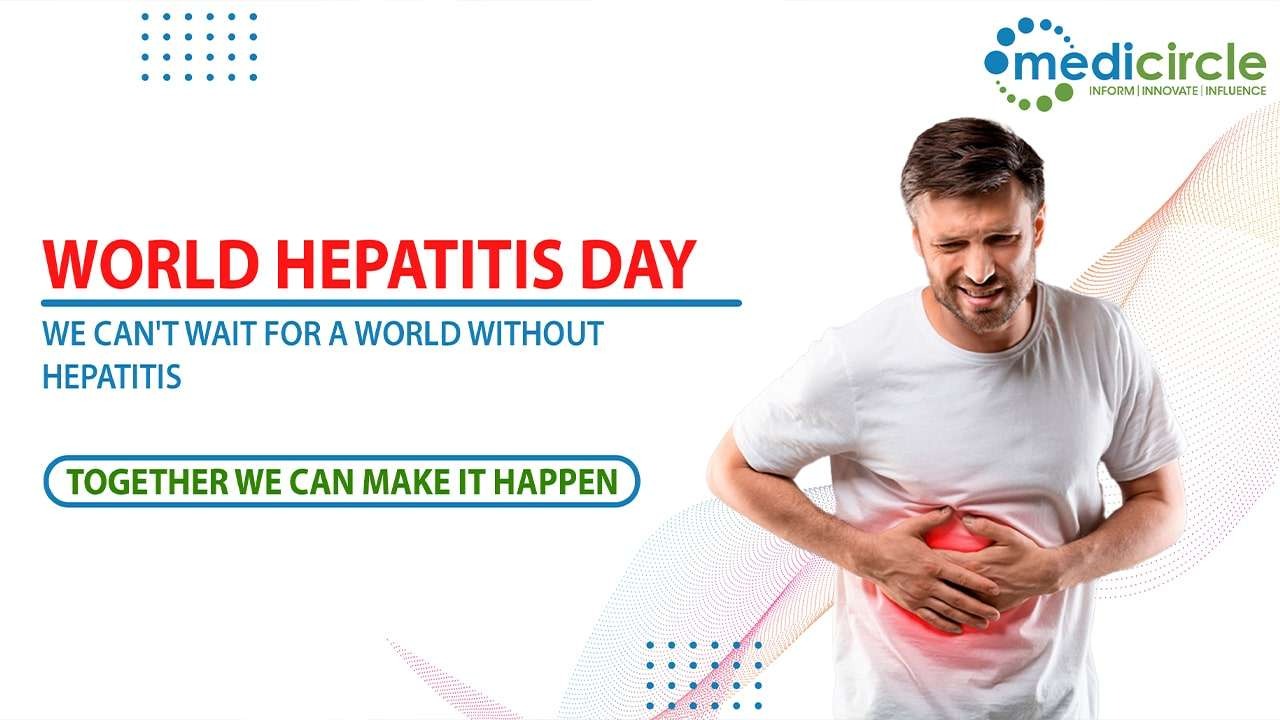Hepatitis refers to an inflammatory condition of the liver. It is commonly caused by a viral infection. But there are other possible causes of hepatitis too. On the occasion of World Hepatitis Day Medicircle wants to raise awareness on the importance of testing for hepatitis, the availability of effective care and curative treatment, and the serious health consequences resulting from undiagnosed and untreated viral hepatitis.
In India, as per latest estimates, 40 million people are chronically infected with hepatitis B and six to 12 million people are chronically infected with hepatitis C. It places a huge disease, social and economic burden on the affected individual, family, as well as the Indian health system.
Here are some guidelines or tips for preventing Hepatitis from some of India's most experienced and trusted doctors in India
1. One should try to find out the cause and eliminate the causative factor. Alcohol constitutes 40 %- 50 % of hepatitis Hepatitis B or C is viral hepatitis which constitutes about 30 - 40 % Drug-induced hepatitis which constitutes about 10 - 15 % Fatty liver is a very common cause of hepatitis which constitutes 20 - 25%. Liver health must be given importance. Covid has caused multiple organ failures in many patients. For a healthy liver, maintain a healthy lifestyle.
Dr.Ankur Garg,
Director, Surgical Gastroenterology & Liver Transplant
Metro Hospitals & Heart Institutes
Gurugram
2. The good news is, that for the last 10 to 12 years, we have had fantastic treatment options, which allow us to give a single tablet a day, and that keeps the cell count or the viral count low, therefore limiting the damage it can cause on the liver. We have very effective vaccines for hepatitis B. It’s part of the universal vaccination program which the Government of India started in 2008 or 2009”
Dr. Tom Cherian
Founder and Managing Director
South Asian Liver Institute
Hyderabad
3. The hepatitis B vaccine is included in our national immunization program for children and it is given to all the children at 1 to 6 months. There are three doses and we can take booster doses every five months. This is very important for healthcare workers like nurses and doctors who are in contact with the blood of patients and other body fluids of the patients. It is not very costly and easily available everywhere. All these two vaccines are available.
Dr.Vaibhav Somani,
Gastroenterologist and Hepatologist
Bombay hospital
Mumbai
4. After the baby is born, the first thing given is the hepatitis B vaccine. In some cases, immunoglobulin is also given to the newborn, in case the mother was having a high viral load during her pregnancy period. In old age, any disease is fatal due to the body's low immunity be it hepatitis or COVID. So, to fight any viral infection, the body's immunity plays an important role.
Dr. Sachin Wani,
Consultant GI, HPB Specialist, and Laparoscopic GI Oncosurgeon
Currae Specialty Hospital
Thane
5. While hepatitis C and E have no vaccinations available. Hepatitis A is optional vaccination as it is self-limiting and is not recommended for everyone. Hepatitis B is a compulsory vaccine for newborn babies as per the Indian Government. Hepatitis B vaccination should be taken by adults as well. There are 3 doses of the hepatitis B vaccine which must be taken intramuscularly with a sequence of 0,1,6 which means the first dose is on the 1 st day followed by the 2nd dose after 1 month and the third dose after 6 months. Usually, three doses of the hepatitis vaccine are enough. This is a very safe vaccination without any complications which can be taken at any age.
Dr.Priyesh Patel,
Gastroenterologist &Hepatologist
Currae Hospital and Fortis Hospital
Mumbai
It is essential to spread knowledge about liver health and hepatitis prevention. The liver is an important organ that carries out many crucial bodily processes, such as detoxification, metabolism, and nutrient storage. The key to overall health is maintaining a healthy liver.

 Remember, spreading awareness about hepatitis is crucial to prevent new infections and improve the quality of life for those living with the disease. Together, we can make a difference and create a world free from the burden of viral hepatitis.
Remember, spreading awareness about hepatitis is crucial to prevent new infections and improve the quality of life for those living with the disease. Together, we can make a difference and create a world free from the burden of viral hepatitis.










.jpeg)

.jpeg)
.jpeg)
.jpeg)

.jpeg)
.jpeg)
.jpeg)
_(1).jpeg)

_(1)_(1)_(1).jpeg)
.jpeg)
.jpeg)
.jpeg)






